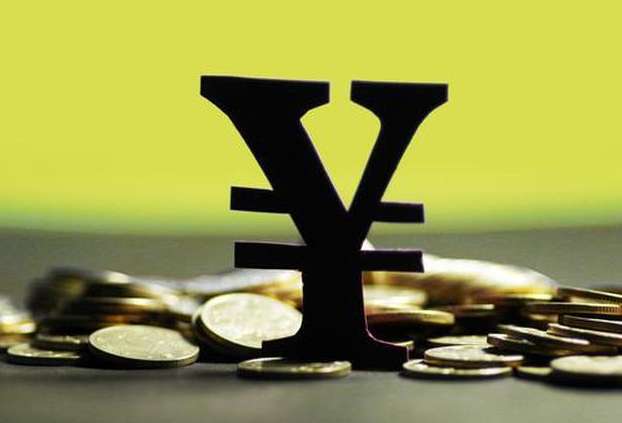In recent times, a significant development in China's financial landscape has emerged, reflecting the country’s commitment to augmenting its financial openness and innovation. With new policies allowing foreign financial institutions to provide similar services as their Chinese counterparts, streamline application processes, and facilitate cross-border investments in certain types of overseas financial services, China is paving the way for a more inclusive and expansive economic environment.
Since the onset of global economic interconnectedness, China has resolutely pursued a path toward financial expansion, aligning itself with high-quality development objectives. Over the past few years, the Chinese government has taken affirmative steps to loosen market entry restrictions for the financial sector, enhance the business environment, and promote greater two-way openness. These efforts have yielded remarkable progress in financial reforms and opened avenues for international institutions to engage with the burgeoning Chinese market.
The recent push encompasses a series of 20 policy measures aimed at optimizing the domestic financial framework. These are set to be tested in various pilot regions, including Shanghai, Guangdong, Tianjin, Fujian, the Beijing Free Trade Pilot Zone, and the Hainan Free Trade Port, as part of the country’s stated goal of creating a more cooperative and open economic landscape. This trial-and-error approach allows the government to explore different facets of financial service evolution in a controlled manner, ultimately leading to a systematic enhancement of the entirety of the financial ecosystem.

As globalization continues to reshape financial markets, the internationalization of China's financial framework has taken precedence. By aligning its standards with global expectations, China is poised to enhance the attractiveness of its financial markets significantly. This move not only invites greater foreign participation but also invigorates the domestic economy. Numerous internationally recognized financial institutions, including JPMorgan Chase and BlackRock, have established a foothold in China, bringing innovative financial ideas and a plethora of diversified products that enrich local investment options and drive market competitiveness.
The primary goal of the financial sector’s evolution must center around boosting international competitiveness and regulatory influence. Local financial institutions are ramping up investments in innovation to enhance the quality of their services and their ability to manage risks adequately. For instance, the Industrial and Commercial Bank of China has made significant strides in digital transformation, establishing an intelligent financial platform that expands cross-border services and increases its presence in international markets. Concurrently, enhancing rule-making influence plays a pivotal role in China’s financial trajectory. By proposing innovative suggestions during international discussions on payment and clearing systems, particularly in the mobile payments domain—a sector where China has a competitive edge—the country is navigating the intricate terrain of global financial regulations.
However, amidst these advancements, global financial regulatory reform has encountered numerous challenges. While regulatory standards concerning capital adequacy and risk management show signs of improvement, significant threats linger. Notably, some regions are grappling with accumulated risks from high leverage and market speculation, evident in emerging economies where corporate debt levels soar, and real estate bubbles threaten fiscal stability. Furthermore, the secondary effects of monetary policy adjustments in major economies—such as the Federal Reserve's interest rate hikes—exacerbate volatility in other countries, highlighting the urgent need for synchronized global regulation, particularly with the rise of convertible digital currencies that offer both opportunities and challenges for global financial oversight.
In response to these complex dynamics, China is actively engaging in international financial cooperation and governance. Through bilateral agreements, such as currency swap arrangements with various nations, China promotes the facilitation of trade and investment, reinforcing the stability of financial markets. On the multilateral front, China has been a proactive participant in reform initiatives within international financial institutions like the International Monetary Fund (IMF) and the World Bank. By pushing for a more equitable representation of emerging markets in these organizations, China is amplifying its voices within global economic governance. The creation of the Asian Infrastructure Investment Bank (AIIB) further exemplifies China’s commitment, providing much-needed funding for infrastructure projects in Asia while contributing Chinese insights and solutions towards a more balanced global financial governance.
The financial framework represents a cornerstone of a country’s social and economic development. Moving forward, it is imperative to prioritize institutional openings to advance China's high-level international financial relationships. Policies aimed at implementing a negative list management system that aligns with pre-entry national treatment will enhance transparency and predictability in investment practices involving foreign capital. Additionally, by bolstering connectivity between domestic and foreign financial markets and facilitating cross-border investment, China will be better positioned to engage in international regulatory reforms, ensuring that it keeps pace with global standards.
Moreover, expanding high-level financial openness requires not only swift action but also a degree of caution. Initiatives are best tested in free trade pilot zones—where localized experiments can inform broader national strategies—thereby mitigating risks associated with widespread reforms. The financial sector must maintain a balanced approach that underscores both aggressive openness and robust safeguards, allowing for improved risk management capabilities and maintaining the sanctity of financial security amid an expanding global landscape.
